Doron Kukliansky
The FACTS Leaderboard: A Comprehensive Benchmark for Large Language Model Factuality
Dec 11, 2025Abstract:We introduce The FACTS Leaderboard, an online leaderboard suite and associated set of benchmarks that comprehensively evaluates the ability of language models to generate factually accurate text across diverse scenarios. The suite provides a holistic measure of factuality by aggregating the performance of models on four distinct sub-leaderboards: (1) FACTS Multimodal, which measures the factuality of responses to image-based questions; (2) FACTS Parametric, which assesses models' world knowledge by answering closed-book factoid questions from internal parameters; (3) FACTS Search, which evaluates factuality in information-seeking scenarios, where the model must use a search API; and (4) FACTS Grounding (v2), which evaluates whether long-form responses are grounded in provided documents, featuring significantly improved judge models. Each sub-leaderboard employs automated judge models to score model responses, and the final suite score is an average of the four components, designed to provide a robust and balanced assessment of a model's overall factuality. The FACTS Leaderboard Suite will be actively maintained, containing both public and private splits to allow for external participation while guarding its integrity. It can be found at https://www.kaggle.com/benchmarks/google/facts .
The FACTS Grounding Leaderboard: Benchmarking LLMs' Ability to Ground Responses to Long-Form Input
Jan 06, 2025



Abstract:We introduce FACTS Grounding, an online leaderboard and associated benchmark that evaluates language models' ability to generate text that is factually accurate with respect to given context in the user prompt. In our benchmark, each prompt includes a user request and a full document, with a maximum length of 32k tokens, requiring long-form responses. The long-form responses are required to be fully grounded in the provided context document while fulfilling the user request. Models are evaluated using automated judge models in two phases: (1) responses are disqualified if they do not fulfill the user request; (2) they are judged as accurate if the response is fully grounded in the provided document. The automated judge models were comprehensively evaluated against a held-out test-set to pick the best prompt template, and the final factuality score is an aggregate of multiple judge models to mitigate evaluation bias. The FACTS Grounding leaderboard will be actively maintained over time, and contains both public and private splits to allow for external participation while guarding the integrity of the leaderboard. It can be found at https://www.kaggle.com/facts-leaderboard.
All You May Need for VQA are Image Captions
May 04, 2022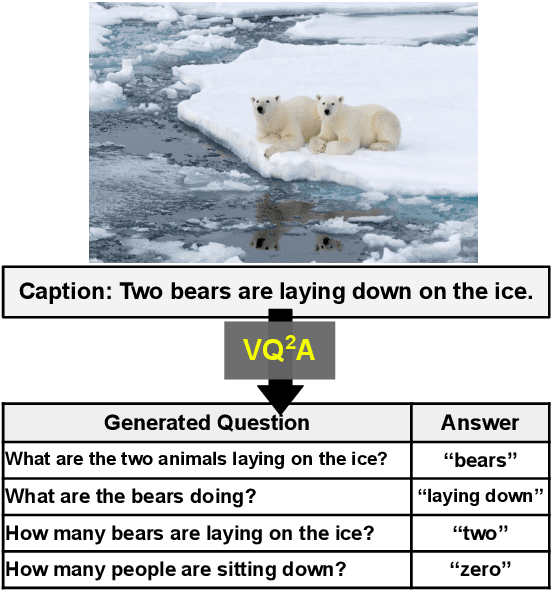
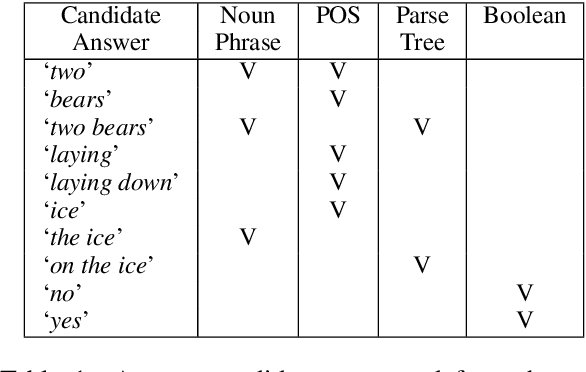
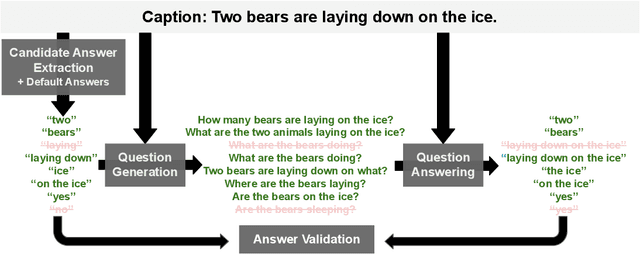

Abstract:Visual Question Answering (VQA) has benefited from increasingly sophisticated models, but has not enjoyed the same level of engagement in terms of data creation. In this paper, we propose a method that automatically derives VQA examples at volume, by leveraging the abundance of existing image-caption annotations combined with neural models for textual question generation. We show that the resulting data is of high-quality. VQA models trained on our data improve state-of-the-art zero-shot accuracy by double digits and achieve a level of robustness that lacks in the same model trained on human-annotated VQA data.
Attribute Efficient Linear Regression with Data-Dependent Sampling
Oct 23, 2014
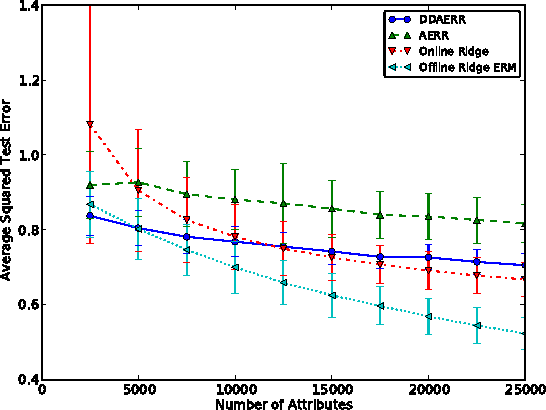
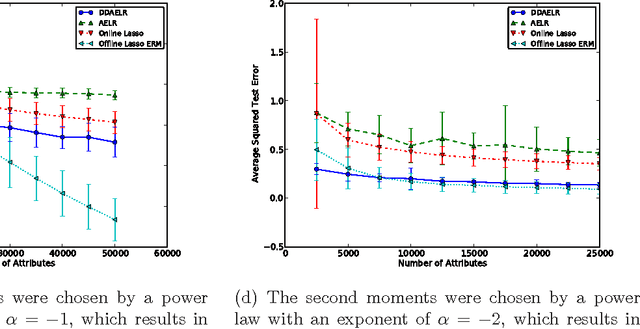
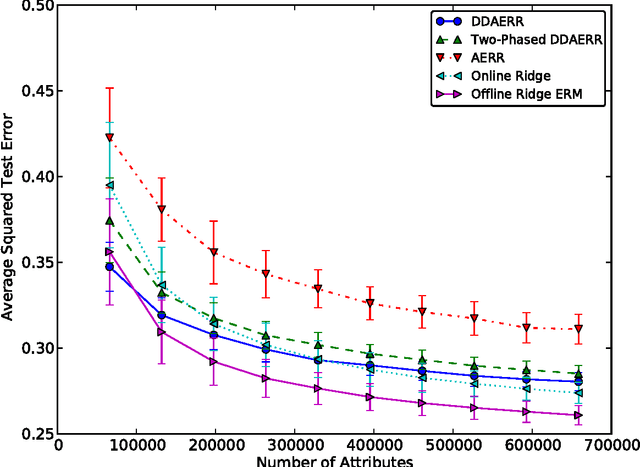
Abstract:In this paper we analyze a budgeted learning setting, in which the learner can only choose and observe a small subset of the attributes of each training example. We develop efficient algorithms for ridge and lasso linear regression, which utilize the geometry of the data by a novel data-dependent sampling scheme. When the learner has prior knowledge on the second moments of the attributes, the optimal sampling probabilities can be calculated precisely, and result in data-dependent improvements factors for the excess risk over the state-of-the-art that may be as large as $O(\sqrt{d})$, where $d$ is the problem's dimension. Moreover, under reasonable assumptions our algorithms can use less attributes than full-information algorithms, which is the main concern in budgeted learning settings. To the best of our knowledge, these are the first algorithms able to do so in our setting. Where no such prior knowledge is available, we develop a simple estimation technique that given a sufficient amount of training examples, achieves similar improvements. We complement our theoretical analysis with experiments on several data sets which support our claims.
 Add to Chrome
Add to Chrome Add to Firefox
Add to Firefox Add to Edge
Add to Edge